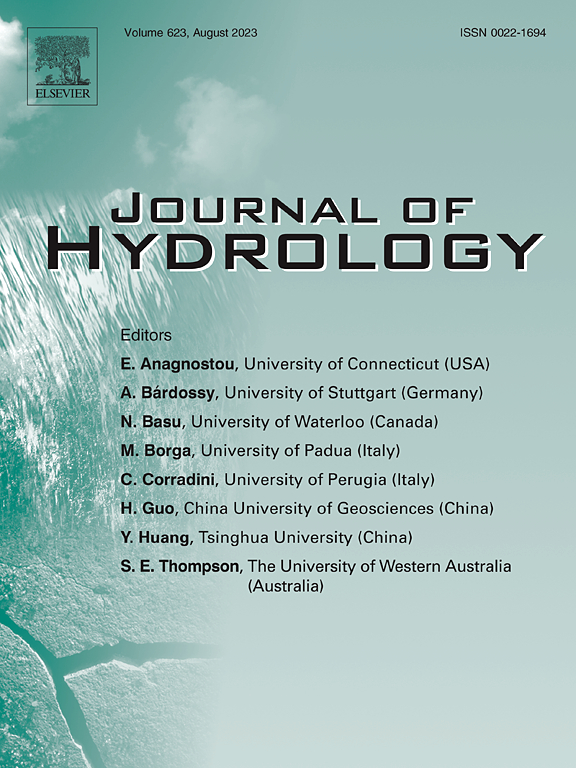Uncertainty-informed multi-reservoir flood control optimization: A probabilistic forecasting and stochastic decision-making framework
IF 6.3
1区 地球科学
Q1 ENGINEERING, CIVIL
引用次数: 0
Abstract
Forecast uncertainty is a critical factor influencing the risk associated with reservoir flood control operations. Traditional assumptions of Gaussian-distributed forecast residuals often fail to capture their variability, leading to challenges in risk assessment and decision-making. To address this issue, this study developed a stochastic inflow scenario generation algorithm that accounts for heteroscedastic residuals and coupled it with an NSGA-III-based reservoir optimization model. Furthermore, a decision-making approach integrating the Fuzzy Analytic Hierarchy Process (FAHP) and the Technique for Order of Preference by Similarity to Ideal Solution (TOPSIS) method was employed to perform multi-objective decision-making, taking into account the fuzziness of decision preferences. The proposed framework was tested on a parallel reservoir system located in the lower reaches of the Yellow River Basin, China. The key findings are as follows: (1) Forecast residual behavior exhibits significant variability across different flow magnitudes. (2) The conventional assumption of Gaussian-distributed forecast residuals underestimates flood uncertainty and its associated risks, particularly during extreme flood events. (3) Incorporating forecast uncertainty into reservoir flood control operations enhances risk mitigation in multi-reservoir systems.
不确定性下多水库防洪优化:一个概率预测和随机决策框架
预测不确定性是影响水库防洪调度风险的重要因素。传统的高斯分布预测残差的假设往往不能反映其变异性,这给风险评估和决策带来了挑战。为了解决这一问题,本研究开发了一种考虑异方差残差的随机入流情景生成算法,并将其与基于nsga - iii的油藏优化模型相结合。考虑决策偏好的模糊性,采用模糊层次分析法(FAHP)和TOPSIS法(TOPSIS)相结合的决策方法进行多目标决策。该框架在中国黄河流域下游的平行水库系统上进行了测试。主要发现如下:(1)预测残余行为在不同流量下表现出显著的差异。(2)传统的高斯分布预测残差假设低估了洪水的不确定性及其相关风险,特别是在极端洪水事件中。(3)将预测不确定性纳入水库防洪调度,可有效降低多水库系统的防洪风险。
本文章由计算机程序翻译,如有差异,请以英文原文为准。
求助全文
约1分钟内获得全文
求助全文
来源期刊

Journal of Hydrology
地学-地球科学综合
CiteScore
11.00
自引率
12.50%
发文量
1309
审稿时长
7.5 months
期刊介绍:
The Journal of Hydrology publishes original research papers and comprehensive reviews in all the subfields of the hydrological sciences including water based management and policy issues that impact on economics and society. These comprise, but are not limited to the physical, chemical, biogeochemical, stochastic and systems aspects of surface and groundwater hydrology, hydrometeorology and hydrogeology. Relevant topics incorporating the insights and methodologies of disciplines such as climatology, water resource systems, hydraulics, agrohydrology, geomorphology, soil science, instrumentation and remote sensing, civil and environmental engineering are included. Social science perspectives on hydrological problems such as resource and ecological economics, environmental sociology, psychology and behavioural science, management and policy analysis are also invited. Multi-and interdisciplinary analyses of hydrological problems are within scope. The science published in the Journal of Hydrology is relevant to catchment scales rather than exclusively to a local scale or site.
 求助内容:
求助内容: 应助结果提醒方式:
应助结果提醒方式:


